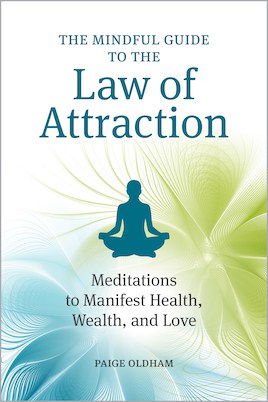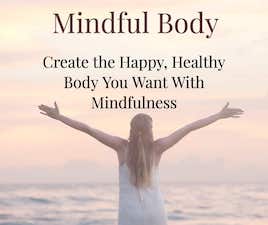When readers leave comments here on Simple Mindfulness asking for help or advice, I do my best to share what I know that may help. In some cases, that’s enough. In others, it’s clear that the reader needs more in-depth help than I can offer in a comment. In those cases, I frequently recommend that the person seek professional help – a licensed therapist of some sort.
But how does one go about seeking such help? What are the steps? What can you expect?
Then there’s the stigma that’s wrapped around needing help. By asking for help it’s as if you’re saying, “There’s something wrong with me.” And wrapped around that are all kinds of negative labels that our society doles out.
When I was a kid, my mother asked me if I wanted to see a therapist. She could tell that I wasn’t feeling right but didn’t know how to help. My initial reaction was, “There’s nothing wrong with me.” She never explained how a therapist could help, even if it was just someone safe to talk to.
I didn’t see my first therapist until things had gotten bad enough in my second marriage, and I knew something had to change. I was tired of feeling depressed and repeating all my old patterns. I didn’t know how to make my life – me – different.
My first therapist helped me with all this. She helped me to get back on my feet and gave me new ways of seeing myself and my relationships which helped immensely.
A few years later I needed help again and found a new therapist. Working with her for a few months helped me to move further along toward better understanding myself and how I contribute to how my life plays out.
Now that I’ve worked through some bigger issues with the help of some great therapists, I have many more tools to help myself when things go awry (which I write about and share with you here). Even with that, I still sometimes need an objective person to bounce things off whose job it is to help me see where I’m off and what I can do to get back on track. It’s like getting a tune-up.
These days I’m the head of finance of a large community behavioral health center. Basically, I’m in the therapy business not as a therapist but as an administrator who helps to ensure that people get the help they need.
The Marriage of Mental and Physical Health
Most insurance companies in America try to match everyone they insure with a PCP (primary care physician) whose job it is to monitor the physical health of their patients. I think the system is missing half the picture. Everyone should be matched with both a therapist and a PCP to ensure that they have someone they can call, regardless of whether their needs are physical or emotional.
I’ve written a few articles (here, here and here) about how emotional issues create or contribute to physical issues. Healthcare costs along with lots of time and emotional energy could be saved if people worked with a therapist while working with their doctor to address their overall health issues.
At the medical clinic that’s part of the behavioral health center where I work, people can come in for their physical health needs. If the doctor they see senses that there might be other issues going on (i.e. depression, anxiety, substance abuse, etc.), the doctor can call in one of the behavioral health specialists (aka – therapist) to address that issue on the spot. It’s amazing how much this helps people in their overall health and happiness.
Why is it that people have no problem sharing their physical ailments with everyone around them but don’t feel the same about emotional issues? People will share that they’re going to the doctor for a checkup, procedure or consultation but won’t share that they’re seeing a therapist about anything.
This double standard needs to end, and I recently discovered a therapist who is doing her part to end the stigma around getting the help you need.
Are u ok?
 Her name is Kati Morton and she recently released a book called Are u ok? A Guide to Caring for Your Mental Health: How to Know if You Need Help & Where to Find It which I highly recommend if you’re not sure about the whole therapy thing, if you’ve had a bad experience with it, if you’re just curious, or you know someone who could benefit from therapy.
Her name is Kati Morton and she recently released a book called Are u ok? A Guide to Caring for Your Mental Health: How to Know if You Need Help & Where to Find It which I highly recommend if you’re not sure about the whole therapy thing, if you’ve had a bad experience with it, if you’re just curious, or you know someone who could benefit from therapy.
 Kati is a Licensed Marriage and Family Therapist (LMFT) who has built a global mental health online community and YouTube channel. Here’s more from the book’s back cover:
Kati is a Licensed Marriage and Family Therapist (LMFT) who has built a global mental health online community and YouTube channel. Here’s more from the book’s back cover:
Everyone struggles with mental health issues from time to time, but the greatest level of misunderstanding comes from knowing the difference between mental health and mental illness, figuring out whether we need professional help and, if so, how to find it. Are u ok? walks readers through the most commonly asked questions about mental health and the process of getting help. From finding the best therapist to navigating harmful and toxic relationships and everything in between, Kati clarifies and de-stigmatizes the struggles so many of us go through and encourages readers to reach out for help. What are the red flags of a mental health issue? How do you go about making a first therapy appointment? How do you know if your therapist is a good fit for you? What are the best ways of talking about mental health with your family, friends, and colleagues? There are so many questions and concerns, and in the down-to-earth, friendly tone that makes Kati Morton so popular on YouTube, Are u ok? informs and remind us that we can get through the difficult times and we are never alone.
If you think that less-than-optimal mental health isn’t common, consider that 20% (one in five) of all children and adults are affected by mental illness. Whether it affects us or someone we know, it’s much more common than you think. And this statistic is only from reported cases. It doesn’t consider the multitudes that suffer in silence, too scared or embarrassed to get the help they desperately need.
I love this quote from the book which addresses what I was saying about the differences between seeing a physical health doctor and a therapist:
Why, in real life, when we trip and fall do we get back up so quickly, yet when we emotionally fall down, we allow ourselves to lie on the ground for weeks, possibly years?
Anxiety
Here’s an excerpt that shows how intertwined physical and mental health issues can be as it relates to anxiety:
Anxiety can stop us from eating, sleeping, and concentrating. Anxiety symptoms can vary from person to person, even expressing themselves physically like they do for Alice:
First, I start breathing harder and get panicky, and then I feel angry, and I just lie on my bed wanting to cry or scream. I’m also very irritable recently, yet I know I shouldn’t yell at anyone, so I bottle it all up inside. Is this all part of my anxiety?
The truth is, yes, all those symptoms can be part of our anxiety, but since many of these symptoms mimic those of a physical illness, people with anxiety are three to five times more likely to wind up at their doctor’s office or hospital.
And I’ve seen this with people I’ve personally known who swear they’re having a heart attack or other physical problem. When taken to the emergency room, the doctors declare them perfectly healthy physically but emotionally, they’re having an anxiety attack. Their anxiety makes them feel like they’re dying.
Depression
Kati’s descriptions of depression are also very accurate (as I’ve dealt with depression through much of my life):
Something to remember about depression is that it’s episodic, meaning it comes and goes. We can have episodes of depression that last for a few weeks up to months, and then they go away like they were never there. I believe it’s because of these episodes that people don’t reach out for help. All of those terrible “I can’t get out of bed” feelings go away, and we think maybe we were making it all up, or it’s really not that bad and we work through it on our own. Then they come back, and we go through the same cycle all over again, possibly not getting help for years.
That was me for decades. Until I got tired of the cycle happening over and over again and decided that I actually needed help.
The truth is that depression doesn’t always show itself in the way we expect. It can be quiet, sneaky, and shift over time. Some of the most common symptoms I have seen, which are not listed on any diagnostic criteria, follow:
-
- Feeling like you are walking through water: everything is harder, and you feel like you’re moving so much slower.
- Reading and rereading the same thing. Concentration is very hard to come by.
- Everyone around you is just so freaking irritating!
- You can’t help but replay everything you have ever done wrong in your life.
I know these symptoms may seem too vague or as if they can be applied to many illnesses, but it’s important to highlight just how varied depression can feel. It’s not always about feeling sad or struggling to sleep; it can look and feel very different person to person. Just remember that however you feel, if you don’t feel like yourself and find that you are less and less interested in things you used to like, please get help.
The lack of energy that comes along with depression is always my largest concern. Many people who come into my office or reach out online tell me they just couldn’t muster up the energy to reach out any sooner.
That’s why depression can hold people hostage for so long. When we have the energy to get up and out of the house, we don’t think we feel bad enough to need any help or treatment.
By the time we actually do feel bad enough and believe we need to get some help, we physically and mentally can’t. This is why we need to not only to do our best to check in on our own mental health, but also to have supportive people in our lives who can help us when we can’t help ourselves. This could be having that friend make the call to see a therapist or driving us to our appointment and waiting with us. However we can make it happen, it’s important that we have a plan to get back up and keep fighting.

Other Reasons to Read Are u ok?
In addition to helping you identify if or when you should seek professional help, the book also covers:
-
- The difference between different mental health professionals (i.e. what’s the difference between a psychologist and a psychiatrist?)
- Preparing for your first appointment
- Figuring out if your therapist is a good fit (hint: You might have to try out a few before you find one that works for you.)
- What are toxic relationships and ways to get out of them?
- Communication: The key to a happy, healthy life
- Avoiding common mistakes and healing broken relationships at home, work and in life
- How to get more help if you’re in therapy and still struggling
Whether you think you need this book or not, I recommend it. If you’re one of the few not struggling with anxiety, depression, addiction, or some other issue that’s preventing you from living your best life, I’m sure you know someone who is and who could benefit from the information in Are u ok?.
Therapy truly is for everyone, just as support with physical health is. There’s nothing wrong with you if you reach out for help. 911 isn’t only for physical emergencies.
But I Can’t Afford Therapy
If you don’t have insurance, there are many ways to find a therapist online, most of which run from $10 to $80 per week. Below is a list and here is a great article at eCounseling.com that compared many options and reviews their top choices.
- TalkSpace offers email and text therapy for a monthly fee.
- BetterHelp.com offers messaging, chat, phone and video therapy.
- If your company offers an EAP program, take advantage of it.
- Teledoc, one of the best online sources of medical advice, also offers online therapy.
- This link and this link summarize some of the top online therapy resources currently available.
If you’re looking for a support group, check out 7Chairs. They provide online, professionally facilitated support groups on a variety of topics including anxiety/depression, cancer, grief, psoriasis, divorce, infertility, and more. Each small group (up to 7 members) meeting occurs at a specific time and day and lasts for several weeks. The groups are facilitated by a licensed mental health professional and are designed to provide emotional support for those dealing with major emotional or physical health issues or life crises.
Many therapists offer sliding scale fees based on how much money you earn. Most areas have community-based resources that are available for free. In Colorado, where I live, the state offers a free crisis line where people can call or text to get the help they need for free. Do some online searches to see what’s available in your area.
If you or someone you know is struggling with a mental health issue, which includes substance use issues, help is available and it’s probably closer and cheaper than you think.
If you’ve had good experiences with therapy and can offer helpful advice and encouragement to others, please leave a comment below.
Create the life you want: Combine the law of attraction with mindfulness
The law of attraction suggests that our positive or negative thoughts bring about positive or negative experiences. My latest book, The Mindful Guide to Law of Attraction, pairs that belief with the powerful practices of mindfulness. Through intentional breathing, writing, and engaging, you’ll hone a method for manifesting health, wealth, and love―the elements of happiness.
Let the law of attraction work for you by adopting its basic steps of identifying and visualizing the things you desire. Then use 45 practical meditation techniques included in the book to achieve awareness. By concentrating your positive energy on obtaining your wants, you’ll give yourself permission to receive them.
To your happiness! ~Paige

You can find this book at Amazon, Barnes & Noble, Books-A-Million, and Indigo.








 The Mindful Living Guide
The Mindful Living Guide




Really interesting. How can I find the best therapy? I need it. Thank you.
So important to know all this, Paige. There’s still such a stigma against seeking help for emotional problems, even though it might help us so much. I know it’s helped me tremendously to work with a trauma therapist. Thanks for encouraging us.
Given what I see in the comments that readers leave on posts here and what I see from those seeking treatment at the community behavioral health center where I work, it’s unfortunately common that people have experienced some sort of physical or emotional trauma in their lives that affects their current mental and emotional state and ability to live a happier life. I frequently find myself recommending that people find therapists well-versed in EMDR, tapping and other trauma-informed modalities. From my own personal experience and the successes I’ve seen from others, these kinds of therapies are very effective, as you have found Sandra.
Finding a good therapist is no different than finding a good doctor. We need to ensure that our mental and emotional needs are addressed on equal footing as physical needs. In many cases, buried emotions are the cause of physical ailments. Treat the emotions effectively and the physical problems disappear.
This is a book that is so needed. I feel many people are interested in therapy, but because of the shame of needing help, they put it off. “Are u ok?” sounds like a great book to help ease a person’s concerns about therapy and give them a path forward.
Absolutely, Cathy! Seeking help for our mental health is the same as seeking help for our physical health. With all the remote technologies available now, it’s easier than ever for folks to find the help they need from home or wherever.
To be honest, I also have always been skeptical about the benefits of talking to a person just once a week. When I suffered form anxiety attacks, I made the move, but I must say it did not really change my mind about therapy.
Maybe I need to be more open about it. Or maybe, I’m one of these persons where it does not work. Who knows.
I was also happy to read that there are now cheap online resources for those that cannot afford a therapist. All people should have access to all medical care!
Olivier,
In my experiences with therapy, in addition to speaking with someone weekly, you also have to do the homework from the therapy session. This homework (whatever the therapist suggests) becomes a daily practice to help reinforce what was discussed at the weekly session. A therapist can’t fix anyone. It’s up to the individual to do the work to fix themselves. It’s the therapist’s job to provide education, support, and guidance through the process.
If you only saw one therapist and are assuming all therapy is like what you experienced, I would highly recommend trying out a few other therapists. Some are better than others and, like any relationship, you’ll need to keep looking until you find the right one for you. I think therapy can work for anyone if they’re willing to find a therapist that’s right for them and do the inner work.
I guess you are right of course.
There was homework. But somehow I never felt the push to do it. Maybe sessions were spread to thin, or the fact that we did not discuss the result of the homework was the culprit.
But I agree that I usually felt better after a session. The caring attention and being able to talk freely somehow lifter my spirits.
Fascinating that there are so many reasons ‘not’ to seek therapy, or guidance of some kind Paige. And that for many others they just haven’t come to the realization that a little help would go a long way towards a happier, more fulfilling life. So kudos to you for sharing the very ideas that could help.
Thank you Elle! Simply having a caring and objective person to talk to can open the door to an abundance of positive changes in a person’s life.
Very comprehensive and helpful information, Paige. I agree with you. The double standard does need to end. I like the question about why do we let ourselves stay down when we trip and fall mentally. I think I’ll have to add this book to my reading list! 🙂
Thank you Debbie! After reading this book, I wanted to order cases of the book to give to people in the community who can’t or won’t seek help due to the stigma or other easily-solved reasons. It helps to explain the whole process of getting good therapeutic support.